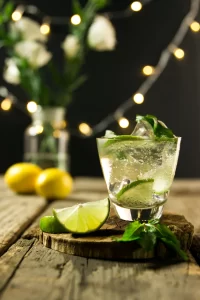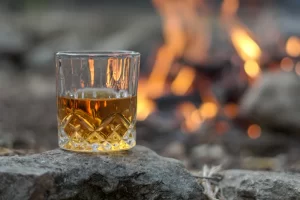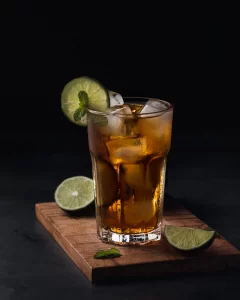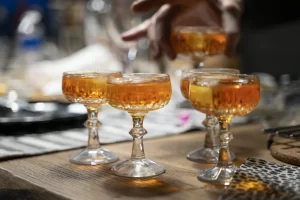Indiana Liquor Laws And Regulations
When it comes to the manufacturing, sale, and consumption of alcohol in Indiana, there is a wide range of different laws and regulations we have to follow.
Like most US states, Indiana has strict laws when it comes to underage drinking and selling liquor without a license.
However, until recently, the laws and regulations regarding liquor in Indiana have been referred to as archaic and obsolete. Luckily, things are changing with new laws and regulations being implemented all the time.
With so many law and regulation changes occurring, it’s important to know the state’s policies surrounding alcohol. Failure to comply with the law could see you fined or even sentenced to prison time.
In today’s post, we’re going to tell you everything you need to know about Indiana’s liquor laws and regulations. If you want to stick to the law and avoid any trouble, keep reading!
General Liquor Laws And Regulations In Indiana
We’ll kick things off by looking at the general laws and regulations the people of Indiana have to follow when it comes to selling or consuming alcoholic beverages. One of the strictest liquor laws in Indiana is one that stops underage people from drinking.
In Indiana, it is illegal to buy or consume alcohol until you are 21 years old. To even enter a liquor store, an individual must be at least 21 years of age or supervised by an adult. Things aren’t much different when it comes to selling liquor.
To sell liquor in Indiana, you must be at least 21 years old or supervised by an adult. As you would expect, it is also illegal to sell alcohol to a minor. Minors are also prohibited from entering bars and taverns.
Like in most states, you must have a valid ID to buy alcohol and a license to sell it. You also can’t buy alcohol if you’re already intoxicated.
Failure to stick to the basic laws regarding underage drinking can result in heavy fines or up to 60 days in jail.
Selling Liquor In Indiana
When it comes to selling liquor in Indiana, the state has strict, but fair laws and regulations that you need to follow. The most important law to remember is that you can’t sell alcohol without a valid license.
Only when you have a valid license can you sell alcohol. Under Indiana law, it is illegal to sell liquor to individuals under the age of 21.
You would also be breaking the law if you sold alcohol to someone that’s already intoxicated. Like the state of Oklahoma, you can’t allow anyone in a drunk state to be on your premises either.
Any alcohol you choose to sell must be purchased from a licensed wine and spirit wholesaler, a beer distributor, or a licensed distillery.
Indiana law also requires permittees and their employees to check the identification of any person under the age of 40 when completing carryout sales.
Employees cannot sell alcohol until they have a permit too.
What Are The Consequences For Breaking The Rules?
The punishment for breaking almost every liquor law or regulation in Indiana is a fine or imprisonment. The punishment for selling alcohol to a minor or having an unsupervised minor on the premises is a Class C misdemeanor.
The penalties for this offense include a $500 fine and up to 60 days in jail. Anyone caught intentionally selling liquor to a minor can be charged with a Class B or Class A misdemeanor. These charges can result in up to 1 year in jail and $5,000 in fines.
If the minor seriously injures someone or even causes death, you could be sentenced to 2 years imprisonment and a $10,000 fine.
The punishment for selling alcohol without a license can result in fines, community service, and potentially prison time if the crime is serious enough.
Operating Hours For Selling Alcohol In Indiana

Until recently, Indiana was one of almost a dozen states that banned all alcohol sales outside of bars and restaurants on Sundays. However, this ban was repealed in 2018. As a result, alcohol can be bought and sold in Indiana from 7 am to 3 am every day of the week.
The only limitation is that convenience stores, grocery stores, and liquor stores must stop selling alcohol by 8 pm on Sundays.
It is probably worth noting here that happy hour deals aren’t allowed at any time of day, on any day of the week. Whilst all-day drink deals are permitted, it is illegal to host a happy hour in the state.
Open Container Laws In Indiana
Unlike other US states, Indiana doesn’t have any strict laws in relation to open containers. In fact, it is perfectly legal to carry open bottles of liquor in public. Alcohol can be consumed on the sidewalk.
However, premises might put their only regulations in place about carrying alcohol off-site. The main law to remember is that it’s illegal to carry an open container in a motor vehicle.
Indiana State Fees
Indiana’s general state fees are a sales tax that is applied to the purchase of liquor. Currently, this sales tax sits at 7%. In the state of Indiana, liquor vendors are also required to pay the state an excise tax of $2.68 per gallon, and a Federal excise tax for all the liquor they sell.
The Federal excise tax for beer is $18 per 31-gallon barrel, $1.07 per gallon of wine, and $13.50 per proof-gallon of distilled spirits.
Different Types Of Alcohol Licenses Sold In Indiana
Indiana has more than 50 types of alcohol licenses to choose from. The type of license a premise needs depends on what they plan on doing.
For example, a distillery will need a license that permits the production of alcohol, whilst a restaurant or bar will need a license that lets them sell it.
The most common permits are two-way permits and three-way permits. A two-way permit lets you sell beer and wine, whilst a three-way permit allows the sale of liquor too. Indiana limits the number of licenses per area, so getting a license can be quite difficult.
It isn’t uncommon for businesses to sell their license to the highest bidder at auction. Some licenses have sold for up to $400,000 despite the two-way and three-way licenses only costing between $750 and $1,000.
Licensing Requirements And Distillery Restrictions/Laws
In Indiana, there are several licenses you need to legally manufacture liquor. This includes a basic permit, a federal license, and a distilled spirit plant license. A standard distillers permit will cost you $2,000. An artisan distillers permit will cost $250.
These permits give you permission to start manufacturing liquor. However, artisan distiller permits limit you to no more than 10,000 gallons of liquor a year. Failure to stick to the rules can see your license revoked. You could also be fined or sentenced to prison time.
It is illegal to manufacture or transport moonshine.
Final Thoughts
There you have it, everything you need to know about the liquor laws and regulations in Indiana. Now you have this information, you should be able to stick to all the laws and regulations with ease.
Whilst Indiana’s laws continue to change, there are still strict rules to follow so make sure you don’t break any of them.









